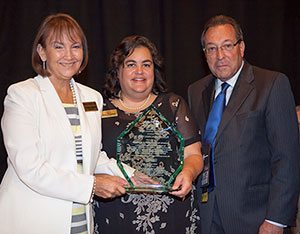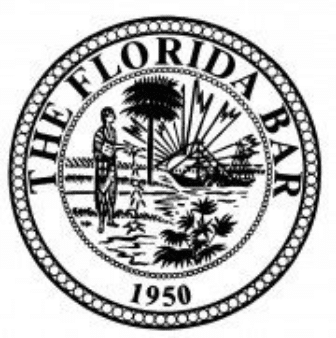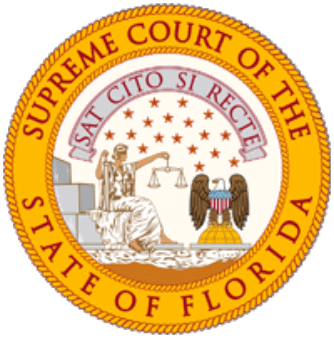July 8, 2015

MAITLAND, Fla. — Attorney Richard Joyce stood before Miami-Dade Circuit Judge Michael Hanzman and stated his 10-year-old client’s case in the simplest terms.
“I believe the court has the ability to enforce this child’s rights,” Joyce said.
The child, who had been in the care of the Florida Department of Children and Families for several years, had been involuntarily committed nine times for psychiatric evaluation under Florida’s Baker Act in spite of the judge’s order that he be admitted to a treatment center equipped to address his “severe mental health needs.”
Joyce was there to make sure that his client would not fall through the cracks again, his presence in the courtroom courtesy of legislation passed in 2014 through the efforts of Florida’s Children First, the 2015 recipient of The Florida Bar Foundation’s Paul C. Doyle Children’s Advocacy Award.
Established in 2013 in honor of Doyle, the Foundation’s longtime grant program director, the award recognizes and encourages systemic legal advocacy on behalf of low-income children by Florida Bar Foundation grantees. Florida’s Children First received the award June 25 at the Foundation’s 39th Annual Reception and Dinner in Boca Raton for its Counsel for Dependent Children with Special Needs Project.
With support from a Florida Bar Foundation Children’s Legal Services grant, Florida’s Children First advocated successfully for passage of the 2014 legislation, which provides attorneys to protect dependent children with special needs who are in the state custody. The Florida Legislature also appropriated $4.5 million in 2014 to fund attorneys to represent these at-risk children. The bills were sponsored by Sen. Bill Galvano and Rep. Erik Fresen.
“Because they are strong leaders in the Legislature and they had the passion, they understood, and they carried this though,” said Florida’s Children First Executive Director Christina Spudeas. “We couldn’t have done this without them. They really cared about the children.”
Amy Guinan, an attorney with Florida Legal Services who works on health-care issues, said Joyce’s representation of his young client — a direct result of the legislation — helped spur needed improvements in the wake of statewide implementation of Medicaid managed care.
“They were still having to use pre-managed care systems in managed care, and all of the players weren’t quite sure how it was supposed to work,” Guinan said.
“Richard being able to really dig into the issues brought them to light so that the agencies involved in implementing these services began to realize that they needed to work more closely together. The Agency for Healthcare Administration realized they had to step in and do some education as to how this process was supposed to work under managed care.”
The case illustrates why it is critical for lawyers to be involved in dependency cases involving children with special needs, which under the legislation include those who reside in a nursing home, have a developmental disability, are human trafficking victims, or are prescribed psychiatric medication.
These children can be subject to the policies and actions of multiple state and local agencies and care providers who may not always communicate with each other in ways most beneficial to the child and whose resources are finite.
“Having this legislation passed this last year was such a personal, fulfilling feeling of having something lasting,” Spudeas said, adding that judges seem pleased with the results.
“There were around 1,100 or 1,200 kids who qualified, and within the first six months there were that many attorneys appointed,” Spudeas said. “About 50 percent were pro bono. The statute requires cases first go to pro bono attorneys and then compensated attorneys if available.”
Florida’s Children First President Howard Talenfeld, a leading children’s rights attorney, called the legislation historic when it was passed last year. Florida’s Children First will work to ensure continued funding, a top priority following a $2.2 million appropriation in 2015.
“These children need all the additional protections they can get,” Talenfeld said.




